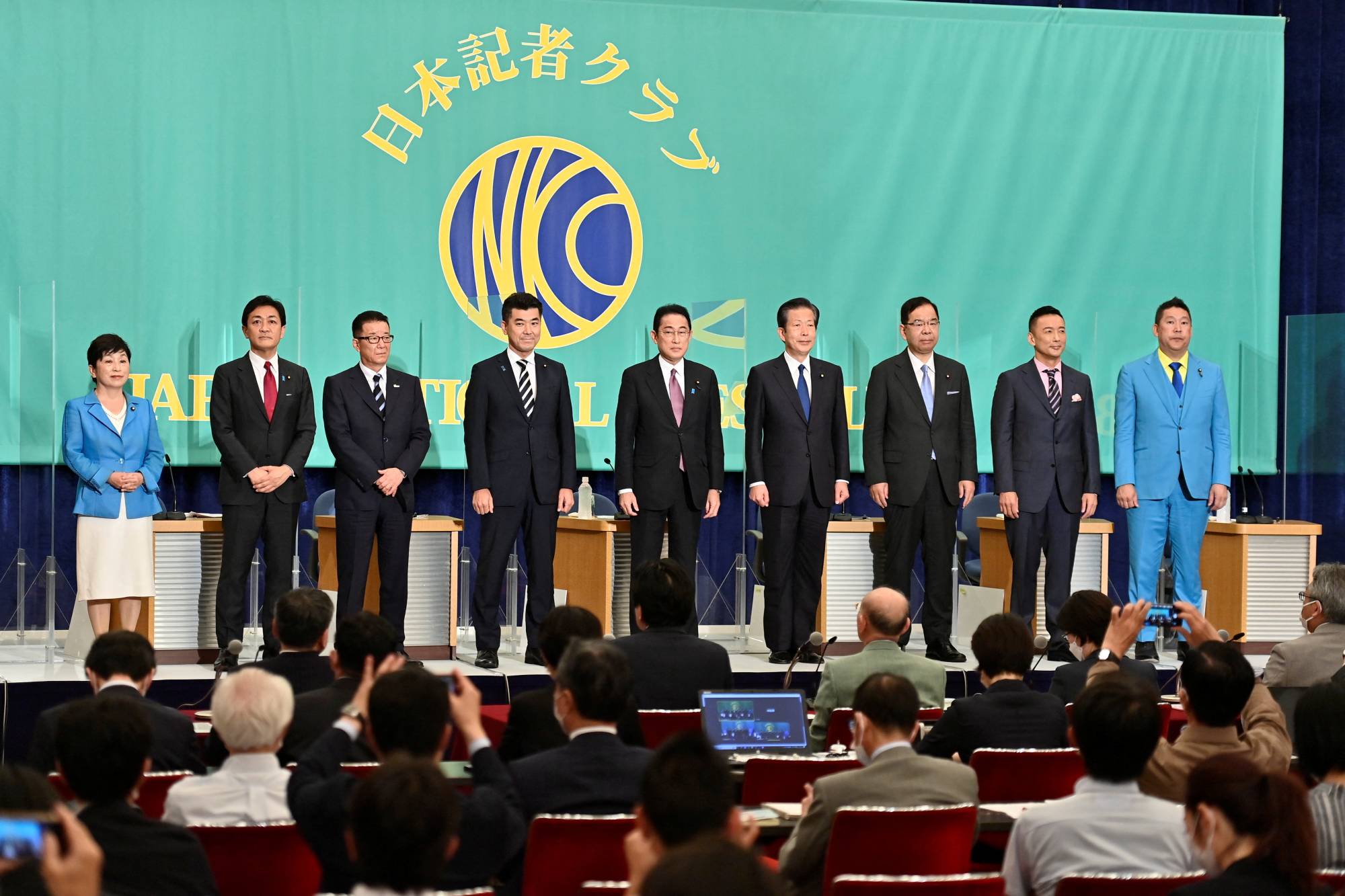The campaign period for Japan’s Upper House election has opened and candidates have two weeks to curry support before voters cast their ballots on July 10.
Short campaign periods have always presented a challenge to opposition party members seeking to unseat incumbents from the ruling coalition, but this time around, media outlets and observers are giving them even less a chance than usual of scoring big wins.
Why is that? In running against the goliath vote-generating machines of the ruling Liberal Democratic Party and Komeito, a few things have generally proven helpful for the opposition during voting season: namely, waning public support, notable scandals, controversial legislation and coordinated election strategies.



